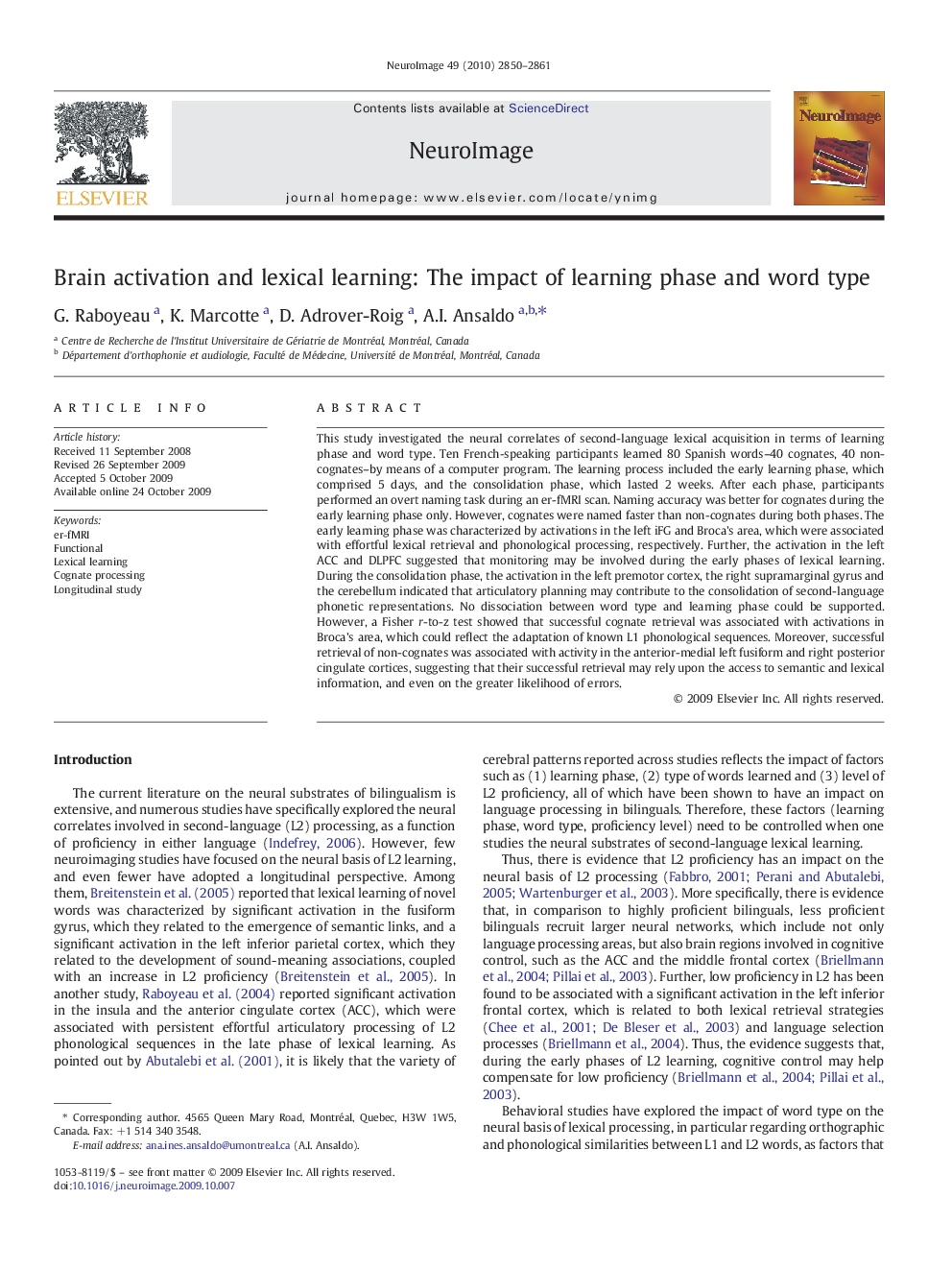| Article ID | Journal | Published Year | Pages | File Type |
|---|---|---|---|---|
| 6037185 | NeuroImage | 2010 | 12 Pages |
Abstract
This study investigated the neural correlates of second-language lexical acquisition in terms of learning phase and word type. Ten French-speaking participants learned 80 Spanish words-40 cognates, 40 non-cognates-by means of a computer program. The learning process included the early learning phase, which comprised 5Â days, and the consolidation phase, which lasted 2Â weeks. After each phase, participants performed an overt naming task during an er-fMRI scan. Naming accuracy was better for cognates during the early learning phase only. However, cognates were named faster than non-cognates during both phases. The early learning phase was characterized by activations in the left iFG and Broca's area, which were associated with effortful lexical retrieval and phonological processing, respectively. Further, the activation in the left ACC and DLPFC suggested that monitoring may be involved during the early phases of lexical learning. During the consolidation phase, the activation in the left premotor cortex, the right supramarginal gyrus and the cerebellum indicated that articulatory planning may contribute to the consolidation of second-language phonetic representations. No dissociation between word type and learning phase could be supported. However, a Fisher r-to-z test showed that successful cognate retrieval was associated with activations in Broca's area, which could reflect the adaptation of known L1 phonological sequences. Moreover, successful retrieval of non-cognates was associated with activity in the anterior-medial left fusiform and right posterior cingulate cortices, suggesting that their successful retrieval may rely upon the access to semantic and lexical information, and even on the greater likelihood of errors.
Related Topics
Life Sciences
Neuroscience
Cognitive Neuroscience
Authors
G. Raboyeau, K. Marcotte, D. Adrover-Roig, A.I. Ansaldo,
